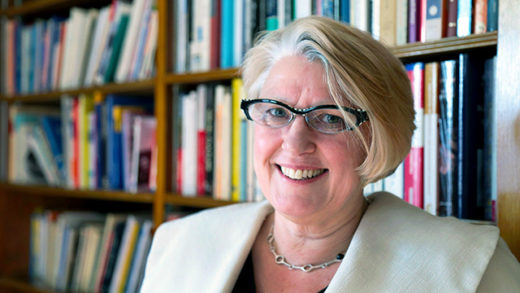
Sonya Stephens
A bill in Florida that would prohibit discussions of sexual orientation and gender identity in kindergarten through 3rd grade public school classrooms is quickly making its way toward the desk of Gov. Ron DeSantis. If we are honest, we should admit that this bill, dubbed the “Don’t Say Gay” bill by opponents, is less about protecting students than it is about cynically fueling America’s political divide. And Florida’s bill is part of a nationwide trend as 15 similar bills now move through other state legislatures.
As a leading liberal arts college in Massachusetts—one with strong ties to Florida through our Posse Scholars program, which brings cohorts of Miami-area students to our campus every year—we at Mount Holyoke are deeply dismayed to see this issue used to score cheap political points.
Unfortunately, in recent years, Republicans have found that harnessing divisive issues of race, sexual orientation or gender identity to parents’ concerns about what their children are being taught in public schools is an effective means to win at the ballot box, as Gov. Glenn Youngkin’s recent victory in Virginia indicates.
As a women’s college that has long been a leader in advancing opportunities for women, gender equity and LGBTQ rights, Mount Holyoke stands in solidarity with those who oppose this bill and other similar initiatives across the country.
The Florida bill seeks to limit what teachers can say about gender and sexuality, and could impact mental health services for all Florida students. Also, school districts there would need to cover lawsuit costs, as parents could sue schools for violating the vaguely written bill.
As the bill’s many opponents have pointed out, the legislation will likely do significant harm to young students, many of whom are being lovingly raised in families headed by gay or gender-queer parents. Are kindergarteners who draw pictures of their families, headed by two men or two women, for example, really to be prohibited from proudly celebrating their loved ones?
Let’s be clear, this is just the latest instance of efforts to erase discussion of sexual orientation and gender identity—other than the heteronormative—from our schools; efforts which include banning books and gay pride flags, and which can only have lasting and devastating psychological effects on vulnerable LGBTQ youths who are already too often told by society that they should not exist. Legislation similar to this bill in Florida is now moving forward in Georgia.
According to a March 10 report on CNN, more than 150 anti-LGBTQ bills have been introduced so far this year by state lawmakers–bills “aimed at curbing the rights of LGBTQ Americans. … The majority of these bills target transgender people, with a focus on children, ranging from restricting access to gender-affirming healthcare for minors to excluding transgender children from athletics.”
The Florida bill undermines the real progress that LGBTQ people have made in our society over the past 50 years, and it does something equally pernicious. It further erodes trust in some of our most dedicated and undercompensated public servants: school teachers and administrators.
This assault on trust in public institutions has a long history in American politics, but in recent years, political infighting has become far more intense, with questions arising about such fundamental issues as the integrity of our elections and the patriotism of those who express divergent views.
These emerging trends of widespread mistrust and of legislated division are clearly not the way to support the wellbeing and safety of LGBTQ children and families, nor to move the nation forward in developing solutions to a growing list of complex societal challenges.
The question we now face in Florida—and throughout the country—is not only how to stop this dehumanizing bill, but how to find ways to turn down the heat of our rhetoric and to air our differences, addressing issues in a way that restores trust and civility to our national discourse, while reaffirming our ever-growing commitment to respecting and advocating for the broad diversity of identities that we so value as a country.
Sonya Stephens is president of Mount Holyoke College. She recently announced she will become president of the American University of Paris, starting in September 2022.
[ssba]
